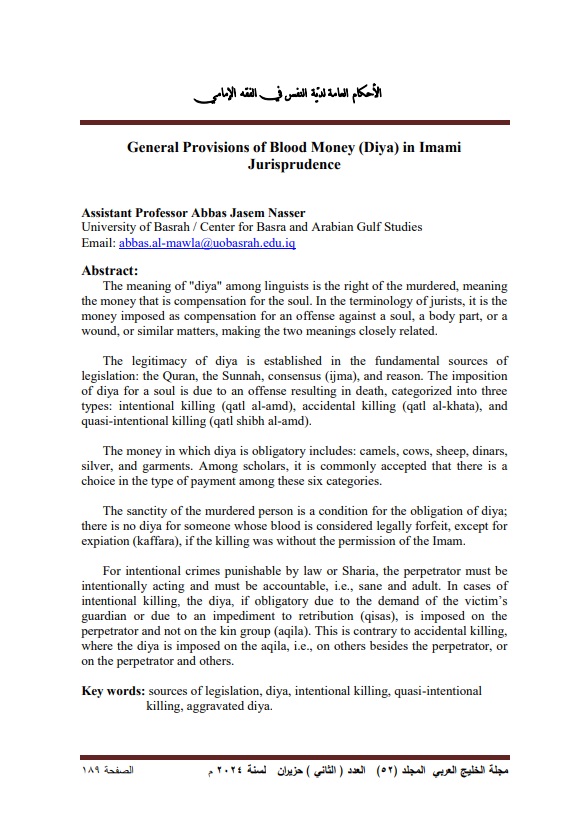General Provisions of Blood Money (Diya) in Imami Jurisprudence
Keywords:
sources of legislation, diya, intentional killing, quasi-intentional killing, aggravated diyaAbstract
The meaning of "diya" among linguists is the right of the murdered, meaning the money that is compensation for the soul. In the terminology of jurists, it is the money imposed as compensation for an offense against a soul, a body part, or a wound, or similar matters, making the two meanings closely related.
The legitimacy of diya is established in the fundamental sources of legislation: the Quran, the Sunnah, consensus (ijma), and reason. The imposition of diya for a soul is due to an offense resulting in death, categorized into three types: intentional killing (qatl al-amd), accidental killing (qatl al-khata), and quasi-intentional killing (qatl shibh al-amd).
The money in which diya is obligatory includes: camels, cows, sheep, dinars, silver, and garments. Among scholars, it is commonly accepted that there is a choice in the type of payment among these six categories.
The sanctity of the murdered person is a condition for the obligation of diya; there is no diya for someone whose blood is considered legally forfeit, except for expiation (kaffara), if the killing was without the permission of the Imam.
For intentional crimes punishable by law or Sharia, the perpetrator must be intentionally acting and must be accountable, i.e., sane and adult. In cases of intentional killing, the diya, if obligatory due to the demand of the victim’s guardian or due to an impediment to retribution (qisas), is imposed on the perpetrator and not on the kin group (aqila). This is contrary to accidental killing, where the diya is imposed on the aqila, i.e., on others besides the perpetrator, or on the perpetrator and others.




